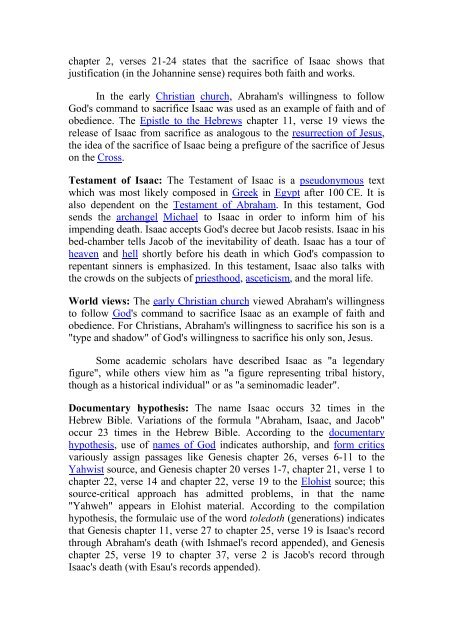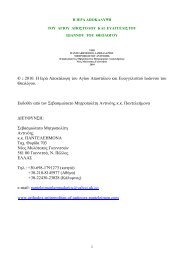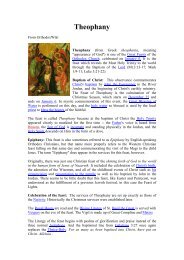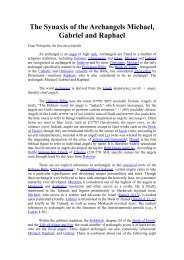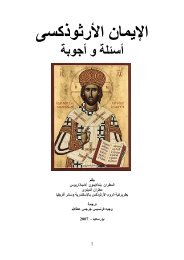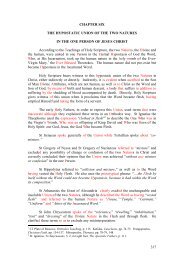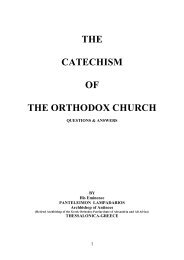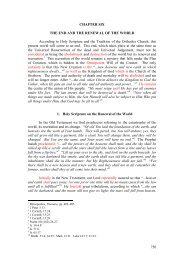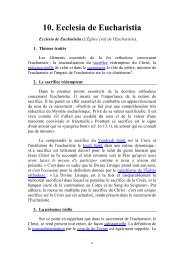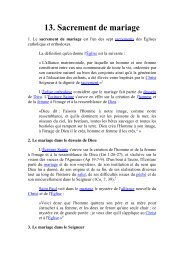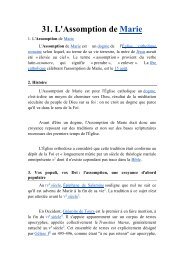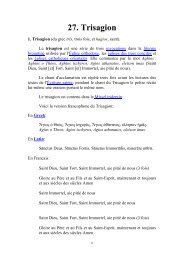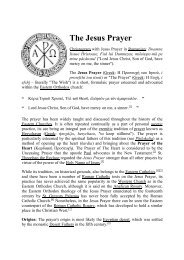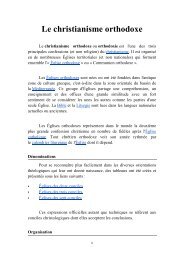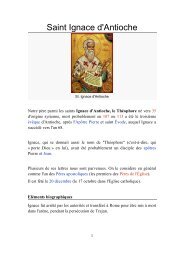The Patriarch Isaac - Orthodox-mitropolitan-of-antinoes-panteleimon ...
The Patriarch Isaac - Orthodox-mitropolitan-of-antinoes-panteleimon ...
The Patriarch Isaac - Orthodox-mitropolitan-of-antinoes-panteleimon ...
You also want an ePaper? Increase the reach of your titles
YUMPU automatically turns print PDFs into web optimized ePapers that Google loves.
chapter 2, verses 21-24 states that the sacrifice <strong>of</strong> <strong>Isaac</strong> shows thatjustification (in the Johannine sense) requires both faith and works.In the early Christian church, Abraham's willingness to followGod's command to sacrifice <strong>Isaac</strong> was used as an example <strong>of</strong> faith and <strong>of</strong>obedience. <strong>The</strong> Epistle to the Hebrews chapter 11, verse 19 views therelease <strong>of</strong> <strong>Isaac</strong> from sacrifice as analogous to the resurrection <strong>of</strong> Jesus,the idea <strong>of</strong> the sacrifice <strong>of</strong> <strong>Isaac</strong> being a prefigure <strong>of</strong> the sacrifice <strong>of</strong> Jesuson the Cross.Testament <strong>of</strong> <strong>Isaac</strong>: <strong>The</strong> Testament <strong>of</strong> <strong>Isaac</strong> is a pseudonymous textwhich was most likely composed in Greek in Egypt after 100 CE. It isalso dependent on the Testament <strong>of</strong> Abraham. In this testament, Godsends the archangel Michael to <strong>Isaac</strong> in order to inform him <strong>of</strong> hisimpending death. <strong>Isaac</strong> accepts God's decree but Jacob resists. <strong>Isaac</strong> in hisbed-chamber tells Jacob <strong>of</strong> the inevitability <strong>of</strong> death. <strong>Isaac</strong> has a tour <strong>of</strong>heaven and hell shortly before his death in which God's compassion torepentant sinners is emphasized. In this testament, <strong>Isaac</strong> also talks withthe crowds on the subjects <strong>of</strong> priesthood, asceticism, and the moral life.World views: <strong>The</strong> early Christian church viewed Abraham's willingnessto follow God's command to sacrifice <strong>Isaac</strong> as an example <strong>of</strong> faith andobedience. For Christians, Abraham's willingness to sacrifice his son is a"type and shadow" <strong>of</strong> God's willingness to sacrifice his only son, Jesus.Some academic scholars have described <strong>Isaac</strong> as "a legendaryfigure", while others view him as "a figure representing tribal history,though as a historical individual" or as "a seminomadic leader".Documentary hypothesis: <strong>The</strong> name <strong>Isaac</strong> occurs 32 times in theHebrew Bible. Variations <strong>of</strong> the formula "Abraham, <strong>Isaac</strong>, and Jacob"occur 23 times in the Hebrew Bible. According to the documentaryhypothesis, use <strong>of</strong> names <strong>of</strong> God indicates authorship, and form criticsvariously assign passages like Genesis chapter 26, verses 6-11 to theYahwist source, and Genesis chapter 20 verses 1-7, chapter 21, verse 1 tochapter 22, verse 14 and chapter 22, verse 19 to the Elohist source; thissource-critical approach has admitted problems, in that the name"Yahweh" appears in Elohist material. According to the compilationhypothesis, the formulaic use <strong>of</strong> the word toledoth (generations) indicatesthat Genesis chapter 11, verse 27 to chapter 25, verse 19 is <strong>Isaac</strong>'s recordthrough Abraham's death (with Ishmael's record appended), and Genesischapter 25, verse 19 to chapter 37, verse 2 is Jacob's record through<strong>Isaac</strong>'s death (with Esau's records appended).


